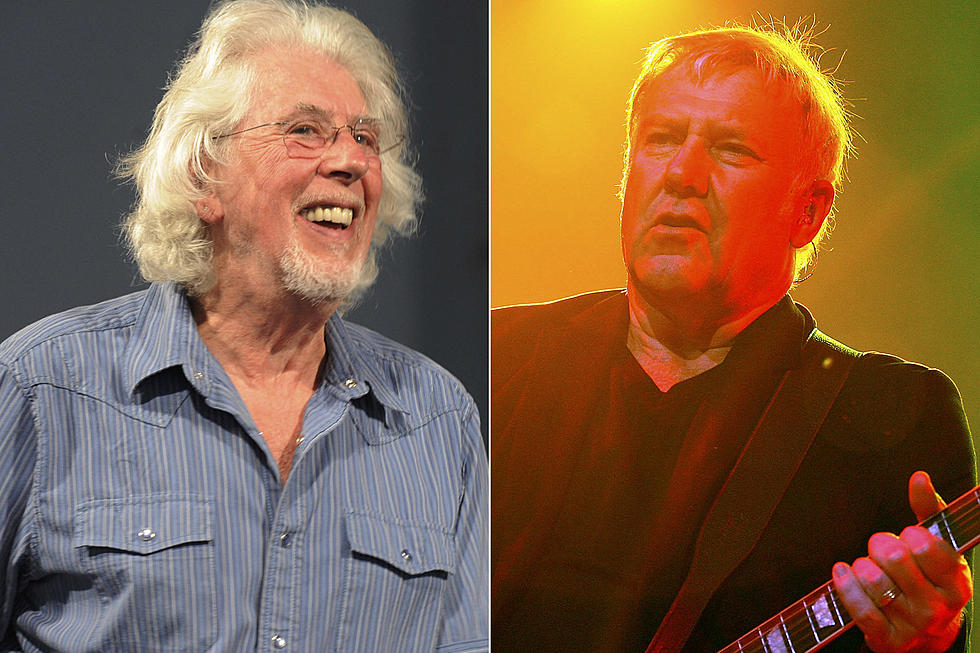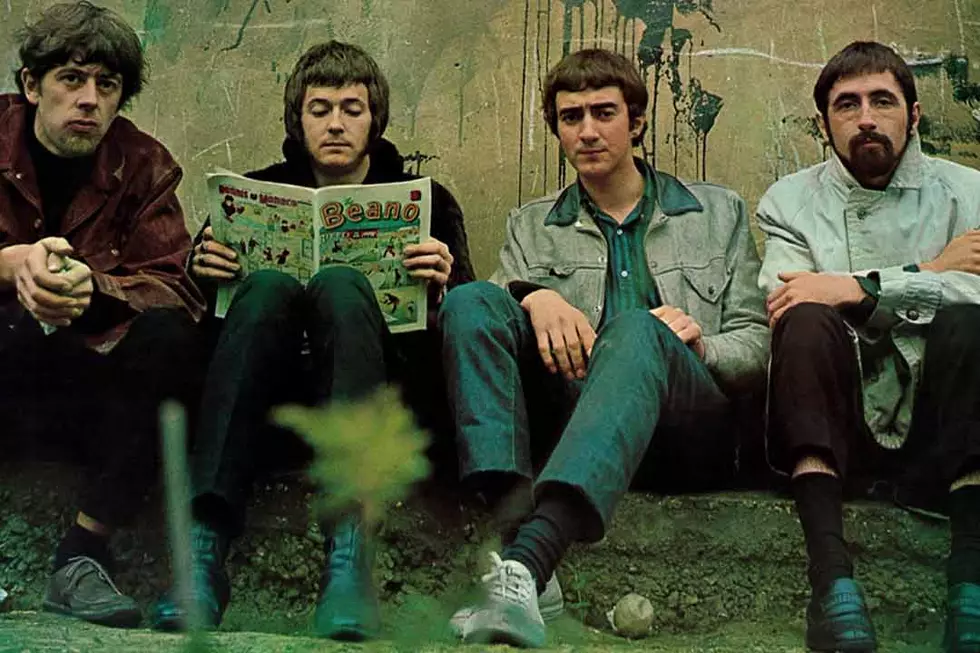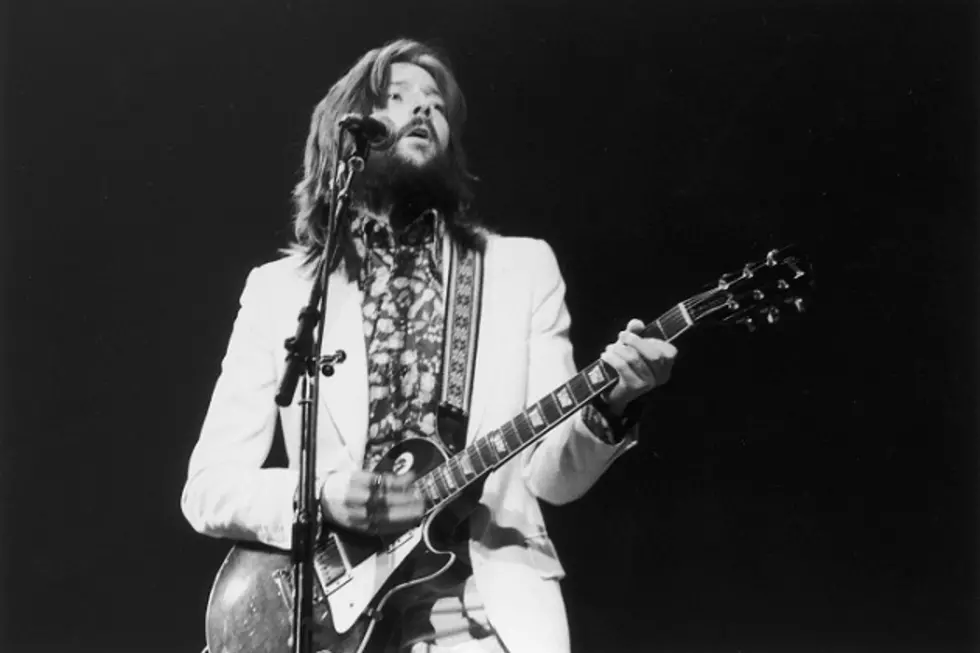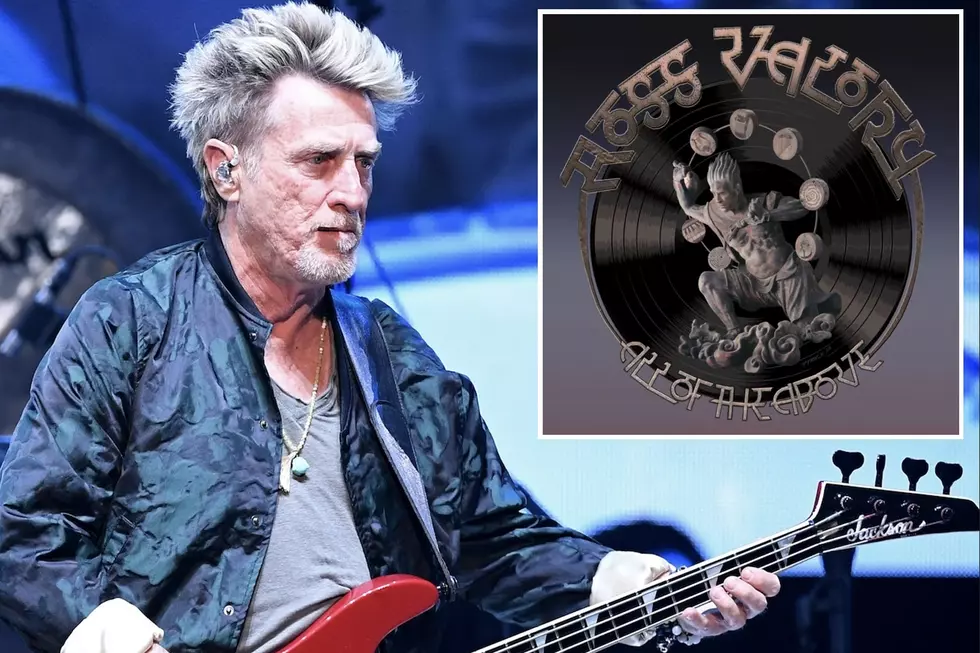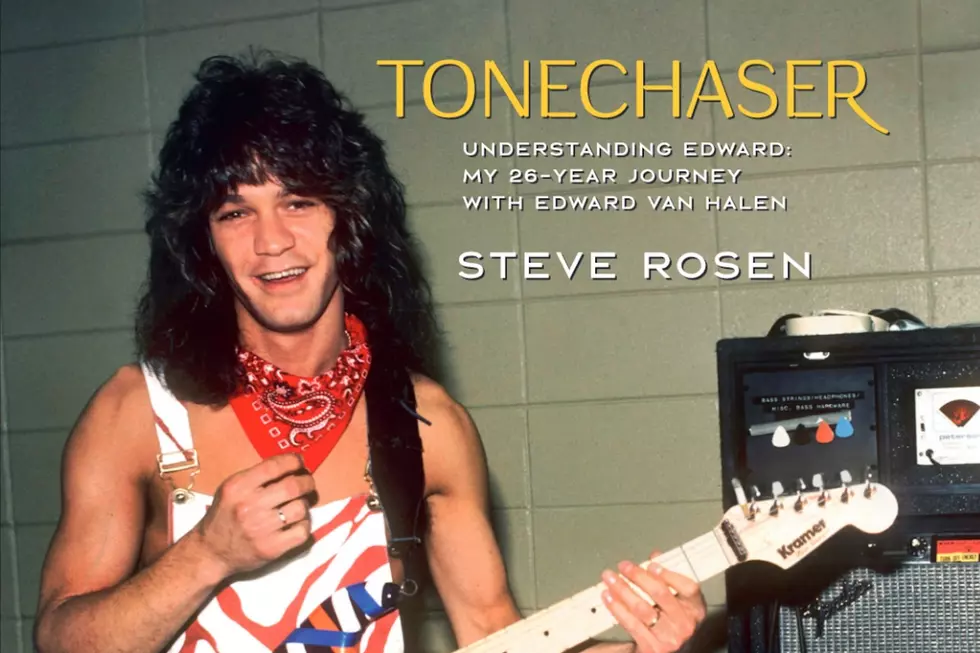
John Mayall Discusses Working with Eric Clapton, Mick Taylor, and the English Blues Explosion
In the '60s there was a major musical shift going on in the clubs around London. English teenagers -- including our interview subject, John Mayall -- armed with Robert Johnson records and secondhand guitars were redefining and reinterpreting a sound that had originated in the fabled delta of Mississippi and the smoky clubs of Chicago so many thousands of miles away.
The effect of this updated take on the blues would be both long felt and everlasting. Amidst this burgeoning new music scene rose Mayall, who would do much to both nurture the nascent movement and help define it for future generations.
After serving a stint in the national service in the '50s, Mayall returned to England and began to study at art school in Manchester. In the meantime he taught himself how to play piano, guitar and harmonica and upon the urging of his friend Alexis Korner began touring around England playing a new supercharged version of the blues that had never been heard before. John Mayall’s Bluesbreakers were a rotational band that at one point or another comprised some of the most talented and noted musicians to ever come out of Great Britain. Among the many men who would serve a tour of duty in Mayall’s group would include a future Rolling Stone, much of what would become Fleetwood Mac and of course “God” himself, Eric Clapton.
At the age of 79, John Mayall still continues to tour to this day. His contribution to the world of popular music is absolutely unchallengeable and his body of work has withstood the test of time as being some of the most exciting music ever put down on tape. Recently we had the opportunity to speak with Mayall about his life, his extensive career and just what he’s been up to lately.
As a young man from England, what was it about the blues that grabbed your attention?
Oh I don’t know. I was raised by a father who had a large record collection of jazz so I just kind of grew up with it. It’s something I’ve never questioned really, it was just all a part of my growing up.
Who were some of your biggest blues inspirations?
Well really early on it was all the boogie-woogie pianists; Albert Ammons was probably my favorite. It just grew out of that really. Big Bill Broonzy was another major player but there were so many that once you get started one leads to another.
What was the catalyst that led you to begin playing music live and professionally?
Well Alexis Korner and Cyril Davies started off the blues movement in 1962 but I had already been playing for myself pretty much all my life up to that point. That was the trigger for me though were I thought to myself that this was the right time to go down to London and give it a go. Alexis introduced me to a few club people and it sort of grew from there.
I was actually going to ask you about Alexis Korner. What was he like and how important was he to that movement?
Well I think he was very important because he was like a figurehead over the whole thing. He wasn’t necessarily a great musician but he had the background knowledge of the thing. He really encouraged a lot of young musicians who were just starting out, like the Rolling Stones. Everybody just sort of gravitated toward him as like a father figure.
Can you describe what it was like to be in the midst of the London blues scene in the '60s? The way it is sometimes described it seems as though it was pretty tight knit.
It felt like an explosion! There was so much energy with people coming from all over the country to get their start in the London clubs and branch out from there. You had the Animals from Newcastle and Spencer Davis and Steve Winwood from Birmingham…people came from all over.
What was touring in those clubs around England? Many -- like Eric Clapton in his autobiography -- have described it as a pretty grueling affair.
Well the only way we had to get around of course was in the van so we spent a lot of hours in the van driving up and down the country. The majority of the gigs were in the London area however, that was kind of the mainstay of it. On the weekends though you’d get a gig up north and like I said it was a long drive but we did it. Had to be done.
In your opinion why did the blues have such a tremendous impact on young English musicians around this time?
I think it just appealed to them ya know? There was so much energy in it and the fact that it was something fresh and new riding in the wake of ten years of listening to like New Orleans jazz, which was the only thing you could ever hear in the clubs. It was just a time for a change.
In your early days you backed up John Lee Hooker for a time around the U.K., what was that experience like?
It was very very important to me. You idolize these blues gods and you never think you’ll actually get to meet them unless you tour around the country with them. I did a lot of touring with John Lee Hooker on his first trip over and then ended up doing the same thing with T-Bone Walker and Sonny Boy Williamson. It was really great.
What was T-Bone Walker like? I’ve heard he had a pretty incendiary live act.
He was great, a very personable guy, very friendly and encouraging. Just a pleasant guy to be around
At what point do remember seeing Clapton for the first time?
I’m not quite sure but quite obviously it was while he was still with the Yardbirds. It could have been any odd club where we might have been on the same bill.
Can you describe the process of how Eric became a Bluesbreaker?
Well he quit the Yardbirds and I made him an offer to join my band so he did.
He lived with you for a time didn’t he?
Yeah, originally he lived too far out of town to make the trip so we kind of had to consolidate our movements and make it to all of our gigs. It was more out of convenience that he stay at my house. Huey Flynn lived in the same area so that made everything a little simpler.
How did you get along with Eric?
We got along well and had a great rapport because we shared the same interests in the music.
I’d like if I could talk about the album 'Bluesbreakers with Eric Clapton' for a bit also known as “The Beano Album”. Was that originally supposed to be a live album?
No, not to my knowledge. I don’t think that that was ever in the cards. We had already done a live album previously with Decca.
How was the material chosen for that album and what were the sessions themselves like?
The sessions themselves were very casual. We were only doing what we did every night in the clubs and were left to our own devices really. We just got on with it and the whole thing ended up being completed in three days which felt normal to us.
While a Bluesbreaker Eric acquired the nickname of “God” amongst many around London, was this recognition more of a distraction or an asset?
I would consider it more of an asset because people wanted to hear him. It definitely drew in a few extra people.
Around this time also you recorded the single “I’m Your Witchdoctor” which was produced by a young Jimmy Page, do you have any memories from this time of Jimmy?
Not really, I mean I had known him before we did that because he used to play at The Marquee Club in a trio situation so I ended up seeing him quite a few times but he was just one of the guys really.
How did you feel upon Eric’s departure without notice to form Cream?
We had kind of gotten used to it before he left because he was very unreliable when it came time to turn up to the shows and whatever. I could see before he left that he was up to moving on to something else. He was always kind of restless so it wasn’t really that big of a surprise.
How quickly did you manage to find [Fleetwood Mac founder] Peter Green to replace him?
After Eric left there was I think two or three weeks where we played with different guitar players and tested a number of people out before Peter Green came along. Then when he did enter the band the show continued as it always has to.
How did Peter’s entrance into the group change the dynamic of the band?
Whenever you get a new musician it obviously affects the way that the music is played. It actually gives you a nice shot in the arm and its always very exciting to get a new twist on things.
When Peter subsequently left then [future Rolling Stone] Mick Taylor came aboard, what was Mick like to work with?
They’re all great, they all love the blues and they all get down and play it. I give them the freedom to do it.
At one point or the other you’ve had some of the most talented and influential musicians of all time in your band and under your direction, what does that mean to you?
It’s just a part of my history and wherever I am I have a band. It really sums up the period of my life when I was in London. It was such a swift turnover of musicians. All of them were just young guys who were just trying to find their feet and I was able to help them along.
As a man who has played with so many fantastic guitarists, what in your mind makes for a good guitar player?
Somebody who has got something original, somebody who is playing with emotion that touches people. It’s a combination of excitement plus emotion.
Are their any new projects you have on the horizon?
We have a live three CD set of unissued live performances going back from 1969 all the way up to 1993, which I think is a pretty special set. We’re bringing those along with us on the road.
What keeps you going after all these years?
It’s all the guys I work with. We have a really great time together and are in the happy situation where people get excited to hear us.
To get the latest tour dates and news from John Mayall, visit his official website.
More From Ultimate Classic Rock
